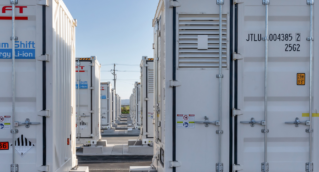12 September 2024
Driving towards sustainability: World EV Day

Earlier this week, World EV Day celebrated its fifth year of acknowledgment. The movement, which began as an e-mobility awareness campaign during the COVID-19 pandemic, quickly evolved into a globally recognised initiative promoting sustainable mobility and contributing towards a low-carbon energy future.
Like many companies in New Zealand and across the globe, McKay began its transition towards generating a lower carbon footprint many years ago, with the adoption of EV and Hybrid vehicles being a significant part of the transition.
Now accounting for 20% of our fleet throughout New Zealand, our EV and Hybrid vehicles prevent approximately 352kg of CO2 emissions from entering the atmosphere each month. A number that we plan to grow over time as we continue to evaluate the environmental and social impact of our fleet sustainability.
While EV batteries and charging infrastructure are still in their infancy, continuous technology advancements are being made, including support from the Government’s long-term strategic vision for a national electric vehicle charging infrastructure that can support New Zealand’s growing EV fleet, while helping to meet the country’s climate commitments.
An encouraging trend for EV charging infrastructure is the integration of renewable energy sources, an approach that enhances energy resilience and reduces strain on the national grid. Charging stations play a crucial role in connecting renewable energy sources with electric vehicles. To date, throughout globe, solar, wind, and hydropower have all been utilised to provide sustainable energy sources for EV charging, with multiple renewable sources used at times to balance supply and demand.
As New Zealand businesses increasingly incorporate electric vehicles into their operations, offices and buildings can reap the rewards of installing charging stations that are powered by renewable energy sources on site. For instance, 85% of McKay’s head office fleet charging requirements are currently being fulfilled by our 30kW rooftop solar array.
Additionally, businesses can benefit from the opportunity for further sustainability through the lifespan of EV batteries. Presently, EECA project that the life expectancy of an EV battery ranges between 10 to 20 years, covering over 350,000kms before experiencing any significant decline in range capacity. Once the battery reaches the end of its use in powering a vehicle, it can be repurposed for a second life. This could include:
• Providing stability to the grid
• Storing energy from renewable sources, like solar panels or wind turbines, that cannot be stored naturally
• Powering a residence in tandem with solar panels
The celebration of World EV Day serves as a reminder of the collective effort New Zealand, and global businesses, are making toward driving sustainability through the decarbonisation of transport.



